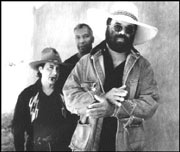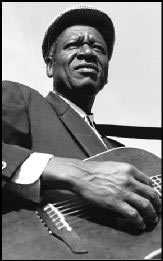SALIF KEITA
Century Ballroom, 206-324-7263, $28
8 p.m. Sun., Oct. 27
THEY SAY YOU can never go home again. But sometimes, it seems, you can. Mali’s Salif Keita, celebrated as one of the world’s great singers, has managed it on his shimmering new acoustic album, Moffou, a decided change from the more Westernized efforts of recent years.
“I wanted to return to the source and go back to ‘the house,'” he explains. “It’s an experience of the heart.”
That return has been more than just spiritual. After years of living in Europe, Keita now spends a good part of his time in Bamako, Mali’s capital, where he’s opened a nightclub (also called Moffou—the name refers to an African flute). It felt perfectly natural to return, he insists, since “I’m from Mali, so this is home for me. My time in Paris was about experiencing other cultures. Paris didn’t influence my music—I was seeking out that music.”
By rights, Salif Keita should never have been a singer. His family has an aristocratic lineage, making life as a performer socially unacceptable. But a second strike came with Keita being born albino, something considered a curse in Africa. However, music was an innate part of him, and he overcame the odds—including being disowned by his father—to help form the Super Rail Band, before leaving to join Les Ambassadeurs, “my initiation to modern music,” with whom he first made his name.
It was as a solo artist, though, that Keita found international fame, and over the last 15 years and five albums he’s become known as the Golden Voice of Africa, winning acclaim around the globe for his keening, beautiful singing. But with Moffou, his first disc in three years, Keita, now 53, has become more contemplative, almost reborn back in his native land.
“There’s more space, it’s more natural. The vital issue for me is love, and I’m not really talking about anything other than love. There are enough problems in the world right now, and the central focus has to be love.”
Although his sound now is gentler—he promises that his shows on his current tour will be “85-90 percent acoustic”—even Keita doesn’t know where his music will take him in the future.
“I’m a slave to my heart. I don’t know what’s going to happen tomorrow. Happiness isn’t for tomorrow. It’s not hypothetical, it starts here and now.”









